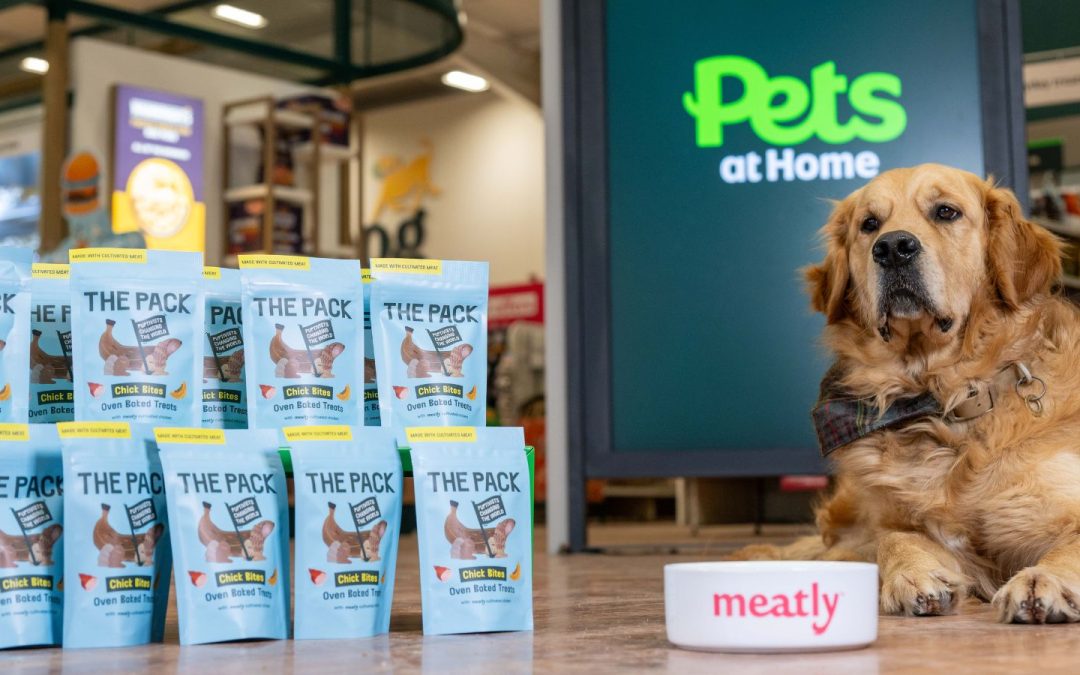Meatly, a cultivated meat supplier, has become the first company to supply a cultivated meat product in the UK for sale at retail. The ‘Chick Bites’ product has been released in collaboration with plant-based dog food brand The Pack.
Chick Bites combines plant-based ingredients with Meatly Chicken. The company said that to produce its Meatly Chicken, a single sample of cells was taken from one chicken egg, from which “enough cultivated meat can be produced to feed pets forever”. The supplier claims that Meatly Chicken is “just as tasty and nutritious as traditional chicken breast”, and said that it contained “all the essential amino acids, critical fatty acids, minerals and vitamins needed for pet health”.
Product development and testing included demonstrating that the cultivated chicken is free from bacteria and viruses, that the nutrients used to grow the cells are safe, and that the final chicken product is “safe, nutritious, and free from GMOs, antibiotics, harmful pathogens, heavy metals and other impurities”.
Meatly has also confirmed that it plans to raise additional funds to expand production and make Meatly Chicken more broadly available over the next three to five years, with further collaborations planned with The Pack and Pets at Home.
Pets at Home is one of the largest investors in Meatly and as a result Pets at Home becomes the first retailer to sell pet food made from cultivated meat globally.
Owen Ensor, founding CEO of Meatly, commented: “We’re incredibly excited to introduce cultivated meat to the pet world. Just two years ago this felt like a moon shot. Today we take off. It’s a giant leap forward – toward a significant market for meat which is healthy, sustainable and kind to our planet and other animals.
“We’re proud to work alongside fellow pioneers Pets at Home and The Pack and we’re just getting started. Next we’ll scale our production and make products more widely available to consumers.”
As part of the approval process, Meatly collaborated with the Food Standards Agency (FSA), the Department for Environment, Food and Rural Affairs (Defra), and the Animal and Plant Health Agency (APHA).









